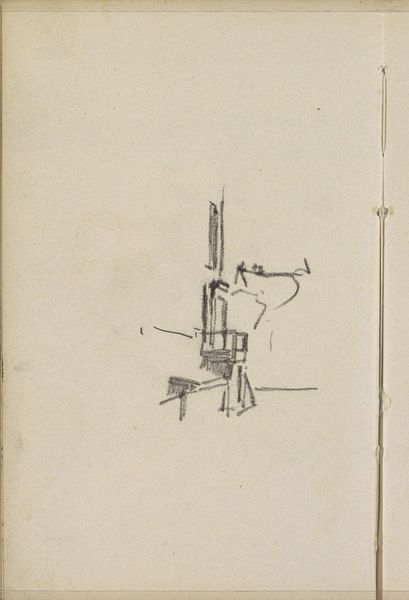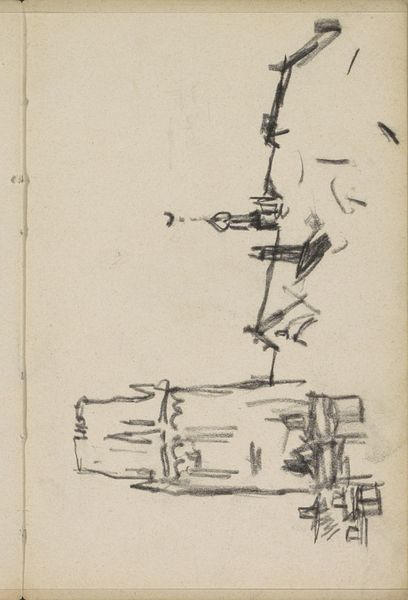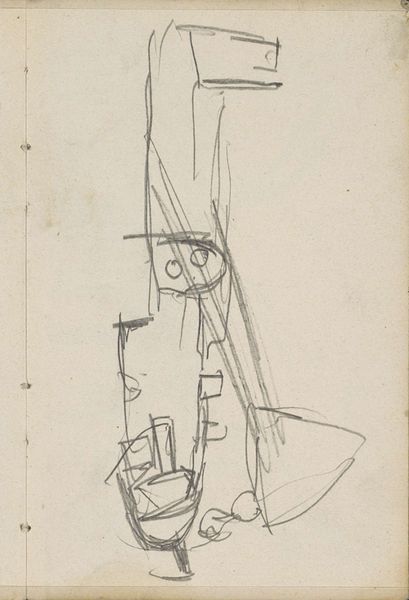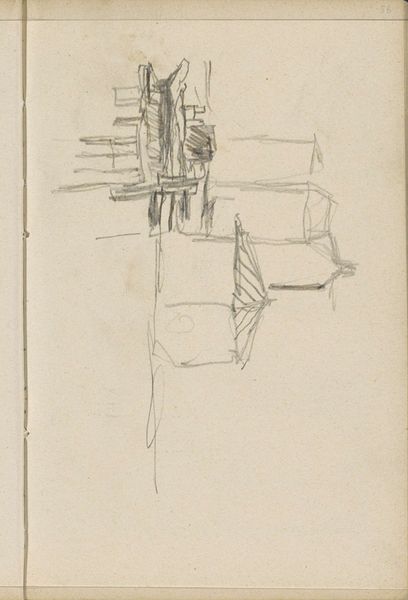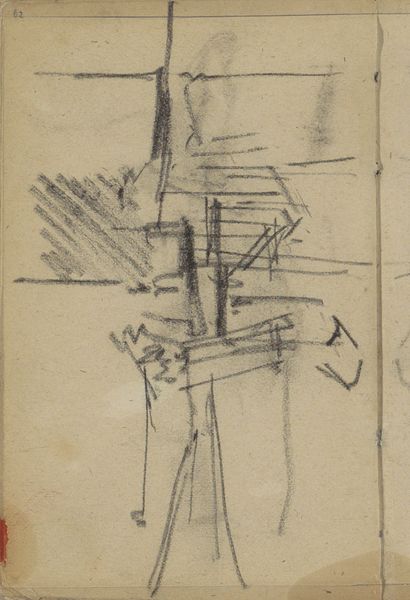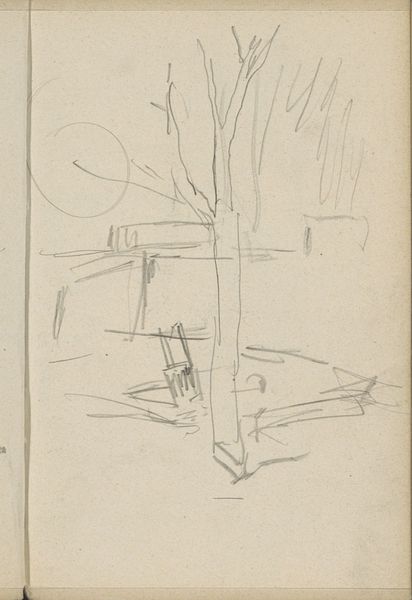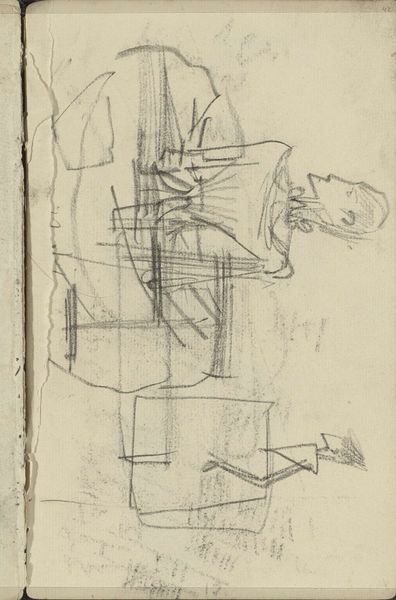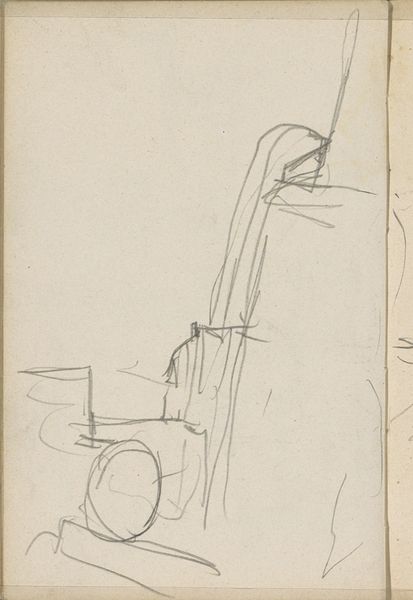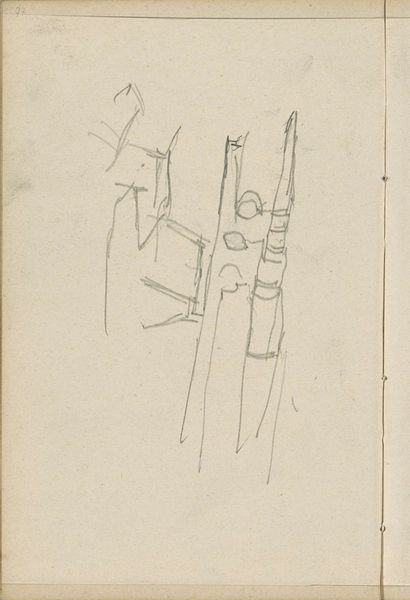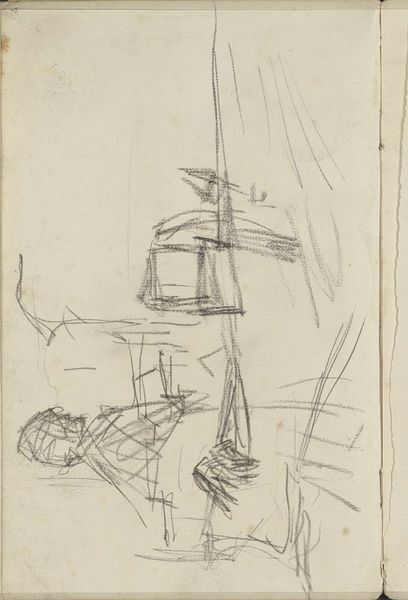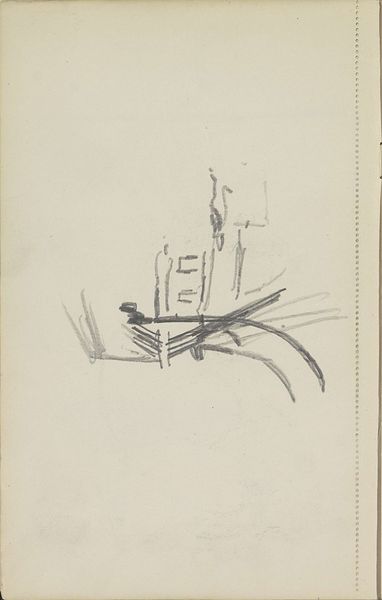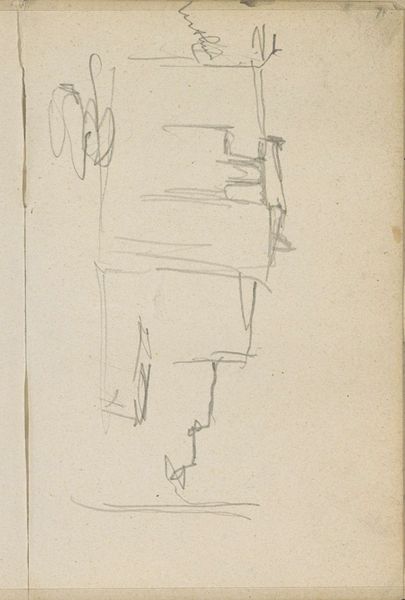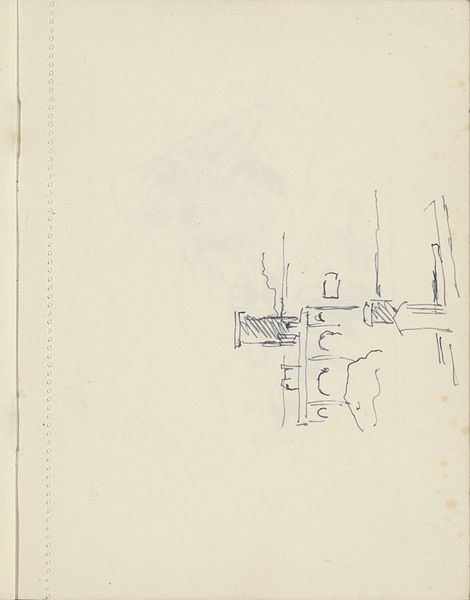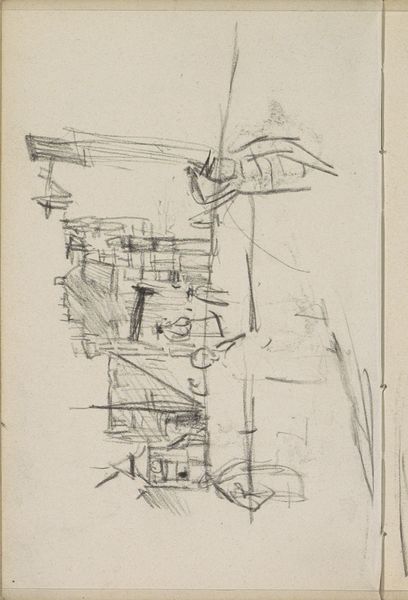
Copyright: Rijks Museum: Open Domain
Curator: Before us we have "Studie, mogelijk van een paard en wagen" – a study, possibly of a horse and cart. This piece is credited to George Hendrik Breitner and was likely created sometime between 1886 and 1903. Editor: It feels like a fleeting moment captured in charcoal, all swift lines and shadows. Is that truly a horse and cart? My eyes keep playing tricks, it feels so ephemeral. Curator: Indeed, the pencil medium allows for a remarkable economy of line. Notice how Breitner captures movement with such brevity – the dynamism within the suggested forms. This piece offers a window into Breitner's process; you can see the genesis of form and composition. Editor: There’s something quite melancholy about it, almost as if Breitner sketched the subject as it disappeared into fog. Curator: It could well be. It's important to remember Breitner was associated with the Amsterdam Impressionism movement, and thus sought to render the urban experience in a direct manner. Such rapid execution lends itself to capturing transitory effects like light and weather. The subtle tonal variations he achieves with the pencil are quite impressive. Editor: It feels like a memory fading, but I also sense an invitation—to reimagine that half-formed shape and bring our own narrative to it. Does this tell us something deeper about Breitner’s engagement with city life beyond simple record keeping? Curator: Precisely. While the study stands on its own merits as an exercise in observation, it reveals Breitner's acute awareness of urban flux. The incompleteness suggests a world always in motion, constantly becoming and unbecoming. His sketches remind us that we only ever grasp fragments of reality. Editor: It reminds me of trying to recall a dream: certain shapes and feelings remain, but the overall image remains elusive. And perhaps that fleeting feeling *is* the whole point of it, a reflection on the passage of time. Curator: A fitting conclusion, indeed. Editor: The experience gives us much to contemplate about capturing, or failing to capture, the moment.
Comments
No comments
Be the first to comment and join the conversation on the ultimate creative platform.
